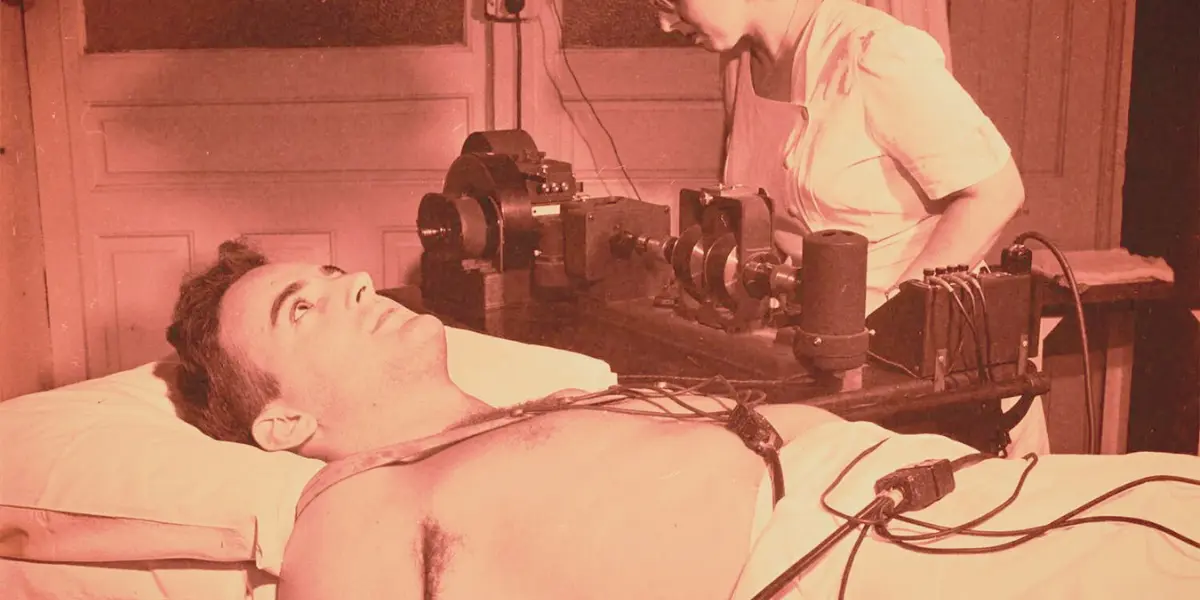Cardiphobia can be termed as an anxiety disorder found in people who fear having a heart attack or any heart disease. People who have already had a heart attack are more prone to this particular mental health condition when compared to those who have not had one yet. However, people who have not had a heart attack or other cardiovascular diseases can also have this anxiety disorder for a variety of reasons. This fear can cause issues that have the severity of a real heart attack.
However, one of the most fortunate things about this condition is that you can reverse the condition with a couple of treatment plans and medications. Medications, therapy, and other ways can effectively cure the same. Your doctor may also prescribe you some stress reduction practices that you can do in the comfort of your home.
Apart from that, it is also important to distinguish between a real heart attack and an anxiety attack to stay calm and composed in these situations. However, to have that ability to distinguish, you must have a comprehensive understanding of the signs and symptoms of a heart attack and anxiety attack. Hence, in this article, we will be discussing everything you need to know about the conditions and ways to avoid them.
Can Cardiophobia Kill You? How To Treat It?
One of the most important things that you need to know about this condition is that cardiophobia is something that is increasingly affecting populations across the globe.

If you are someone who has been a heart attack patient, someone with higher stress and anxiety levels, or someone having an elevated risk of cardiovascular diseases on account of genetics, lifestyle, or dietary choices, you are highly likely to have this condition.
You may consult an expert cardiologist after having this condition, but the doctor would not be able to find any medical evidence of a cardiac arrest even after performing multiple rounds of diagnosis and analysis.
How Common Is Cardiophobia?
Cardiophobia, a common anxiety disorder, affects a significant portion of the population, with anxiety disorders often leading to excessive fear and worry about heart health. Seeking professional help, like therapy, is crucial for managing and overcoming cardiophobia.
Cardiophobia Symptoms
- Shaking, Sweating, Rapid Heartbeat
- Chest pain or tightness
- Dizziness
- Shortness of breath
- Numbness
- Fever
Risks Of Cardiophobia
People with this condition are also highly likely to develop poor mental health after a particular period. And this can become quite more severe when compared to the real physical symptoms of a heart attack. Frequent panic attacks are also a common thing among people having this condition.
It is also often hard to diagnose the condition of cardiophobia if you are not able to accept the fact of not having a heart attack for real and end up not taking the right treatment and the required therapy when you really need them for an effective recovery.
Difference Between Cardiophobia & Heart Attack

▶ Difference In Pain
The difference in the levels of pain is one of the most prominent differentiating factors in distinguishing between a real heart attack and cardiophobia. The duration of the pain in a heart attack would be much greater when compared to the pain caused by an anxiety attack. The severity of pain would also be different in both with a more intense pain in heart attack and a much lesser one in the latter.
▶ Accompanying Symptoms
Accompanying symptoms is another important thing that you need to notice when it comes to differentiating between a cardiac arrest and an anxiety attack. Difficulties like nausea, cold sweats, and shortness of breath can be found along with a heart attack while rapid heartbeat is the major symptom associated with an anxiety attack or cardiphobia.
▶ Triggering Factors
If you have undergone any stressful conditions lately, you are more likely to have an attack of cardiphobia. This should not be mistaken as a real heart attack since heart attacks may not have a trigger warning before their attack.
Effects Of Cardiophobia On Daily Life
Cardiophobia is the fear of having a heart-related illness or experiencing a heart attack, causing excessive and irrational anxiety. This can lead to avoidance behavior, physical symptoms, strain on relationships, reduced quality of life, work performance, healthcare utilization, mental health issues, and financial burden.
People with cardiophobia may avoid activities they perceive as risky for their heart, such as exercise or strenuous physical activities, and may experience physical symptoms such as chest pain, palpitations, dizziness, and shortness of breath.
The fear can also lead to increased dependence on others for reassurance and support. The financial burden associated with cardiophobia-related healthcare utilization can be substantial. It is crucial for individuals experiencing cardiophobia to seek professional help, such as cognitive-behavioral therapy, and lifestyle changes like a heart-healthy diet and regular exercise.
How Can Cardiophobia Be Treated?

1. Consultation
This is one of the most important and foremost things to do if you are having an anxiety attack or cardiophobia. It is also important to have the right mindset to accept that it is not the heart attack that is causing you trouble, but a mere anxiety issue. If you keep on switching your consultants to desperately find the traces of a heart, it can become more disastrous to you. Doctors specialized in anxiety issues can help you out effectively and thereby even help you reduce the risks of a real heart attack.
2. Stress Reduction Techniques
It is also important to practice self-help techniques that may help you reduce stress and thereby get rid of the issue of cardiophobia.
Yoga and similar breathing exercises can be immensely helpful in the concern. Apart from that, it is also important to have at least 7-9 hours of uninterrupted sleep daily so that you will not have an increased cortisol level and in turn a chronic stress level.
It is also important to practice mindfulness daily to stay calm. You can also learn about progressive muscle relaxation techniques from credible sources to serve the purpose.
3. Physical Activities
Working out for at least 30 minutes a day can also help you significantly. Regular physical activity can keep your mind stay calm and deviate from any kind of negative thoughts including the fear of having cardiac arrests and other similar cardiovascular diseases. Working out in a group or a gym setup can also help you in this regard.
4. Medications
In extreme cases, your cardiologist may also prescribe you some anxiety-reduction pills and medications if you are not able to control and regulate the condition with self-help methods. To get these medications, make sure you are seeking the help of an expert cardiologist whenever you doubt cardiophobia or a heart attack, without making a delay.
Final Thoughts
These are the most important things that you need to know about having cardiophobia as well as a heart attack. The symptoms and signs mentioned in this article would help you have a comprehensive understanding of both conditions and thereby seek consultation and get the diagnosis done at the right time.
It can also help you change your dietary choices and lifestyle for the greater good and thereby reduce the chances of having cardiac arrest and other heart diseases.
References
- Cardiophobia: a paradigmatic behavioural model of heart-focused anxiety and non-anginal chest pain
https://pubmed.ncbi.nlm.nih.gov/1616469/ - Cardiophobia: A paradigmatic behavioural model of heart-focused anxiety and non-anginal chest pain
https://www.sciencedirect.com/science/article/abs/pii/000579679290045I - The impact of depression and cardiophobia on quality of life in patients with essential hypertension
https://pubmed.ncbi.nlm.nih.gov/27837573/